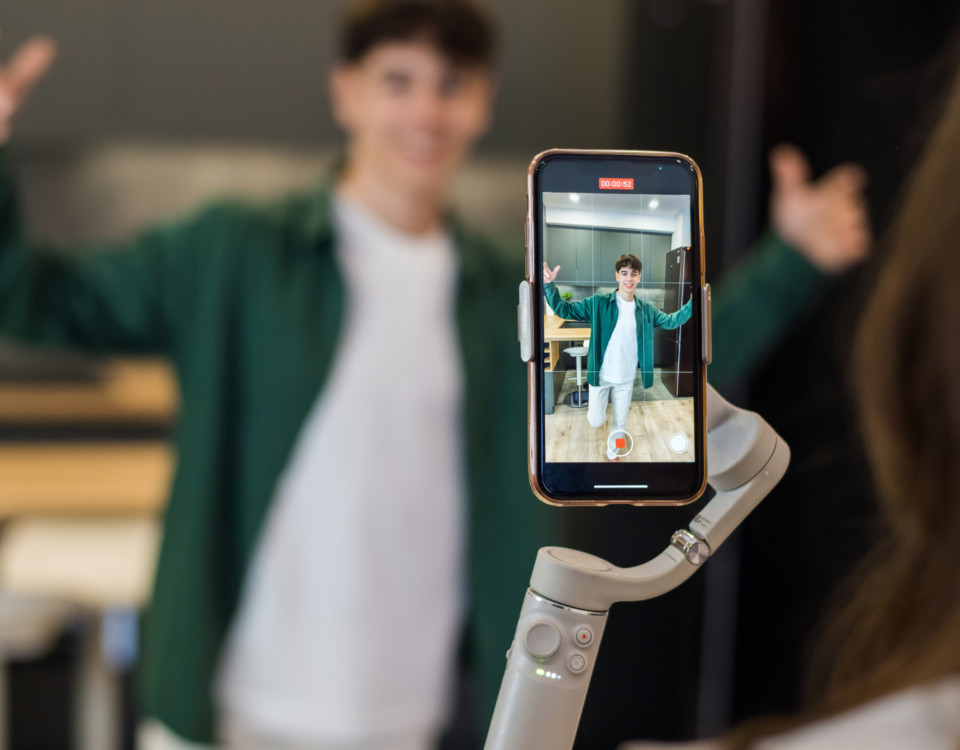
Intellicast S6E14 — New Acquisitions and an IIeX Preview
May 22, 2023
Intellicast S6E15 — An IIeX Recap with Mike Herrel of Directions Research
June 2, 2023Diversity in research has been a trending topic for a few years now. Companies and organizations have done an excellent job of including more practices to promote diversity and inclusion in the industry. However, we feel there is one area of diversity where research needs to dive a little deeper: differential abilities. While researchers like our friend Timothy Cornelius are leading the way in this topic, we want to share the findings from our latest round of research-on-research regarding ability in the workplace.
Overall, we found that persons with disabilities are 10% more likely to be employed full-time than those without disabilities. Persons with disabilities are 3% more likely to be retired and 4% more likely to be unemployed and not looking for work than those without.
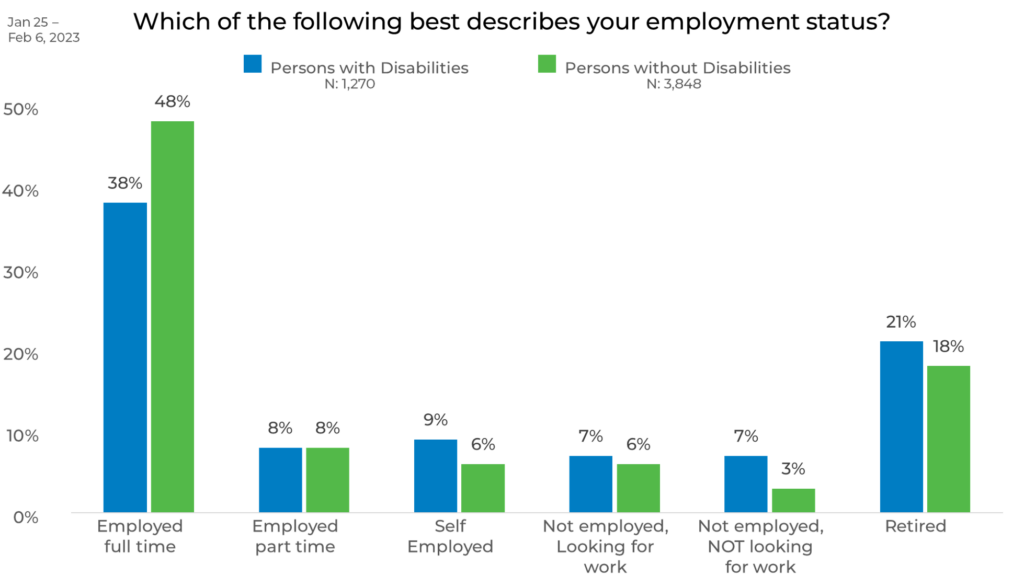
Workplace Ability Inclusion
When it comes to how inclusive people feel their workplace is towards those with disabilities, we see that persons with disabilities are 15% more likely to say their workplace is perfectly inclusive than those without disabilities at 42%.
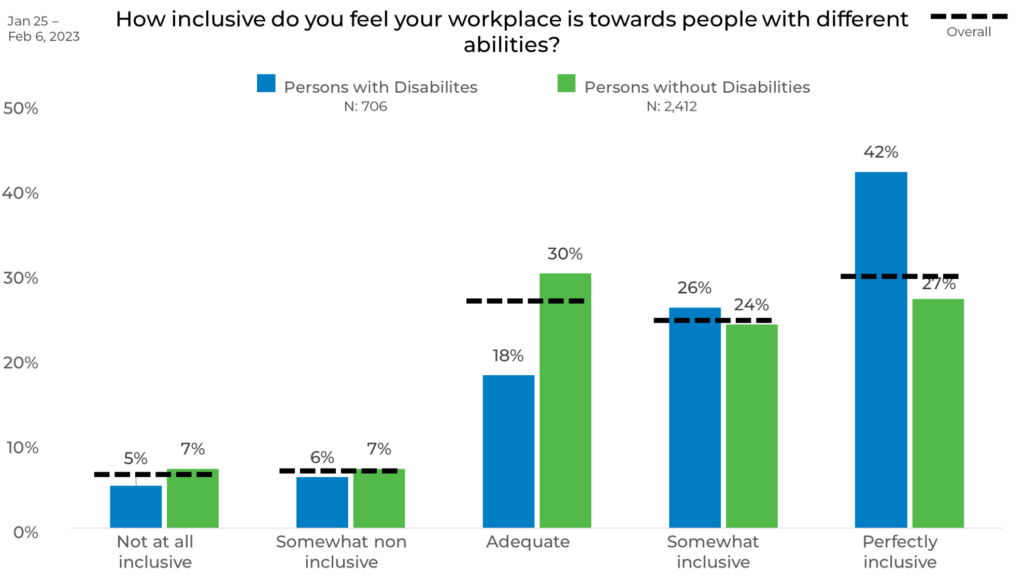
Workplace Ability Discrimination
We also asked respondents if they have ever felt discriminated against in the workplace because of their ability. 41% of respondents with disabilities say they have felt discriminated against in the workplace (33% more than those without disabilities.)
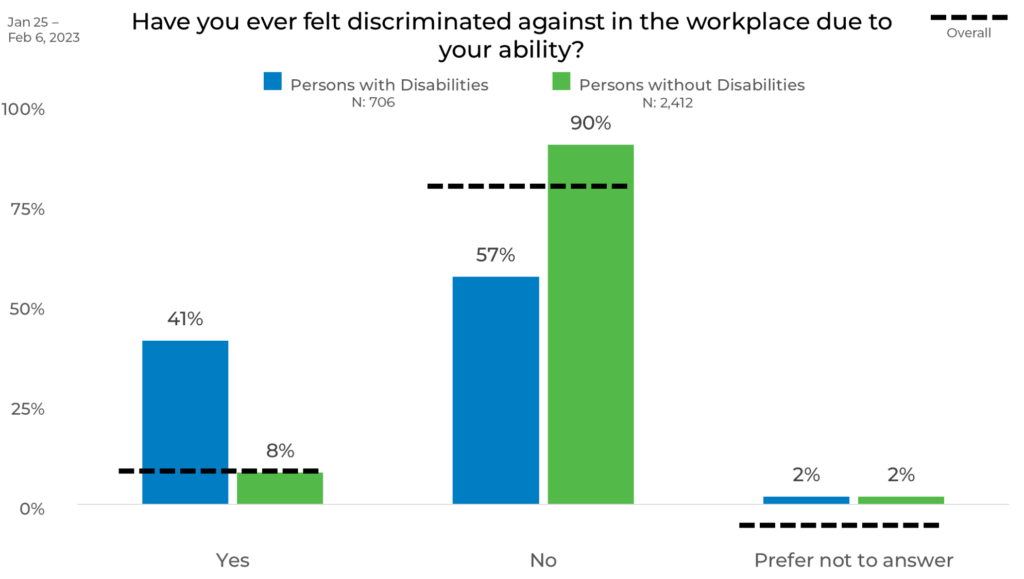
Workplace Ability Accommodations
When looking at accommodation requests in the workplace by ability, we see that 39% of persons with disabilities have requested accommodations at work (32% more than those without disabilities.)
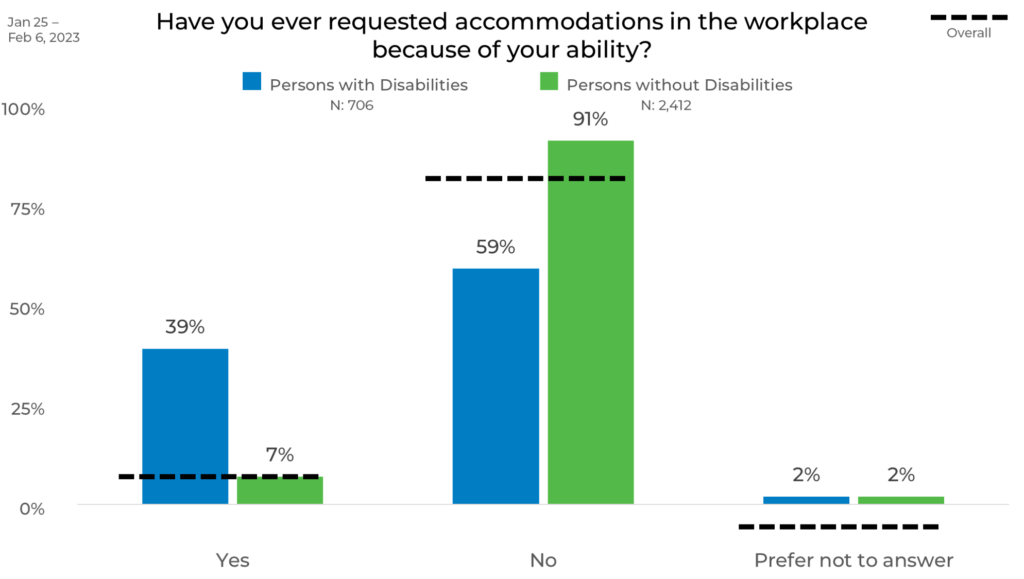
Of those who requested accommodations, 84% of those with disabilities had accommodations provided (11% more than those without disabilities.).
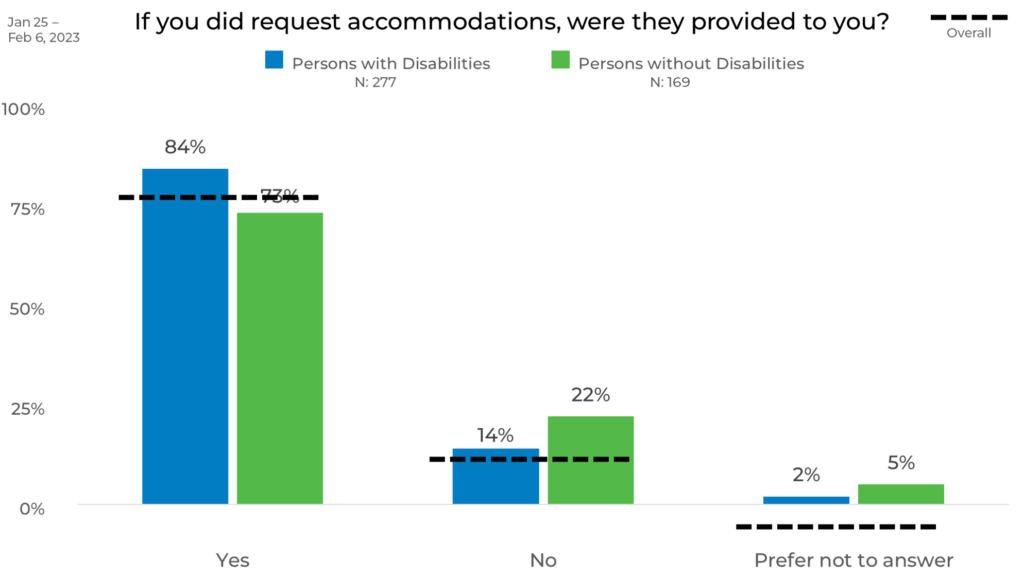
Discussing Ability at Work
We asked respondents how comfortable they are discussing their ability with colleagues and supervisors. 53% of respondents with disabilities are very comfortable discussing their ability with colleagues and supervisors (7% more than those without disabilities.) However, respondents without disabilities are 8% more likely to feel somewhat comfortable discussing their ability with their colleagues or supervisor.
This means that respondents with and without disabilities are equally likely to say they are either somewhat or very comfortable discussing their ability with colleagues and supervisors. Hopefully, with more actions toward ability inclusion, we can get that number closer to 100%.
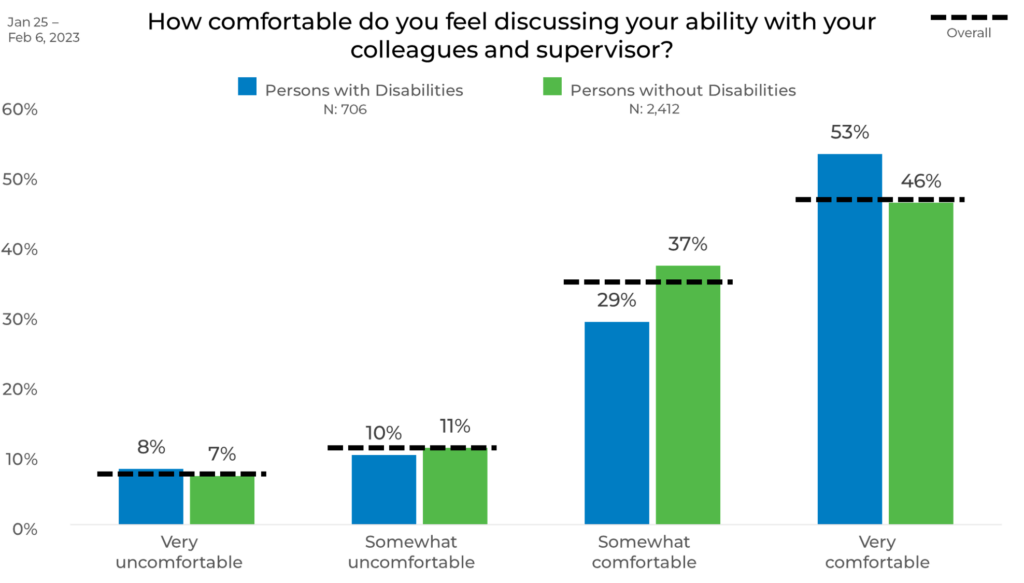
Panel
When it comes to results by panel, we see up to a 28% difference between certain ones. We also see differences up 11 percentage points higher than the overall average and up to 16 percentage points lower than the overall average. This can be due to differences in panel management, makeup, and more.
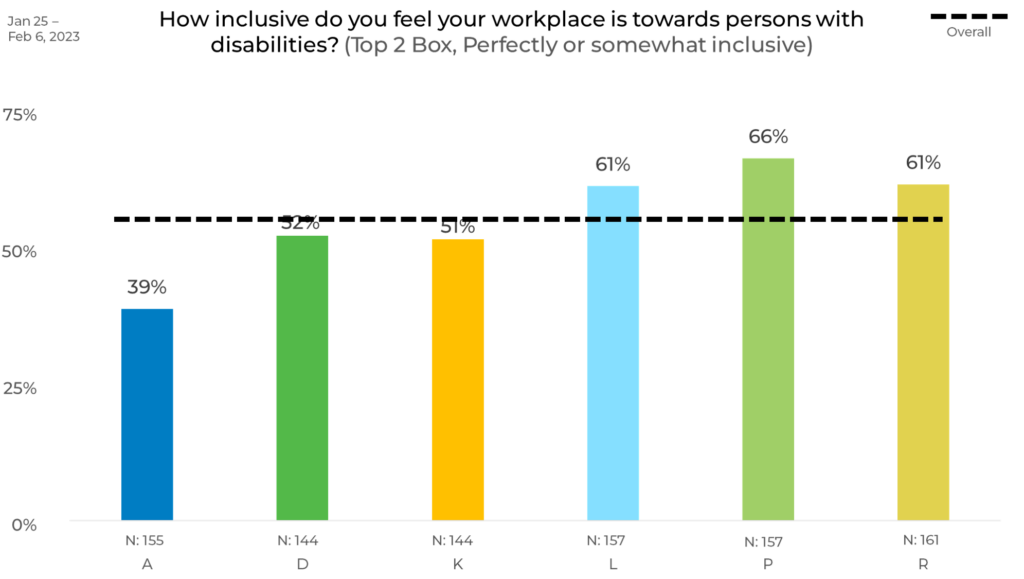
As we see in this blog, respondent experiences vary greatly by both ability and panel. This can have a significant impact on your data. For instance, if someone had used only Panel A, they might think workplaces are much less inclusive to persons with disabilities than actually are. This is why strategic sample blending is the best practice to ensure any changes in your data are due to shifts in the market, not inconsistencies in your data.
It’s also critical that our industry considers the experiences of respondents with disabilities so that they can partake in our research, and we can gather their valuable opinions. As Timothy Cornelius says, “Do your best until you know better. When you know better, do better.”
To learn more about our research-on-research, check out The Sample Landscape: 2023 Edition!




